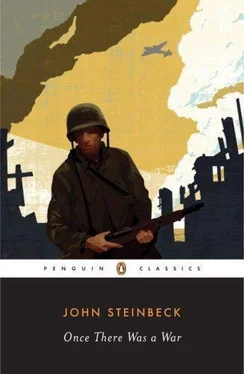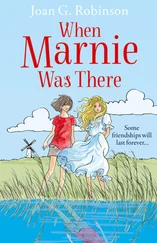John Steinbeck - Once there was a war
Здесь есть возможность читать онлайн «John Steinbeck - Once there was a war» весь текст электронной книги совершенно бесплатно (целиком полную версию без сокращений). В некоторых случаях можно слушать аудио, скачать через торрент в формате fb2 и присутствует краткое содержание. Город: New York, Год выпуска: 1960, Издательство: Bantam Books, Жанр: Классическая проза, на английском языке. Описание произведения, (предисловие) а так же отзывы посетителей доступны на портале библиотеки ЛибКат.
- Название:Once there was a war
- Автор:
- Издательство:Bantam Books
- Жанр:
- Год:1960
- Город:New York
- ISBN:нет данных
- Рейтинг книги:3 / 5. Голосов: 1
-
Избранное:Добавить в избранное
- Отзывы:
-
Ваша оценка:
- 60
- 1
- 2
- 3
- 4
- 5
Once there was a war: краткое содержание, описание и аннотация
Предлагаем к чтению аннотацию, описание, краткое содержание или предисловие (зависит от того, что написал сам автор книги «Once there was a war»). Если вы не нашли необходимую информацию о книге — напишите в комментариях, мы постараемся отыскать её.
Once there was a war — читать онлайн бесплатно полную книгу (весь текст) целиком
Ниже представлен текст книги, разбитый по страницам. Система сохранения места последней прочитанной страницы, позволяет с удобством читать онлайн бесплатно книгу «Once there was a war», без необходимости каждый раз заново искать на чём Вы остановились. Поставьте закладку, и сможете в любой момент перейти на страницу, на которой закончили чтение.
Интервал:
Закладка:
LONDON, July 25, 1943 —
Private Big Train Mulligan, after induction and training and transfer overseas, found himself, with a minimum of goldbricking, in a motor pool in London, the driver of a brown Army Ford, and likely to take any kind of officers anywhere. It is not a job the Big Train dislikes. He drives generals or lieutenants where he is told to drive them at the speed he is told to drive them. Leaves them. Waits. Picks them up. You have only to tell him what time you want to get there and he will have you there, and although the strain on you and pedestrians and wandering dogs and cats will be great, Big Train will not be affected at all.
In his position he probably knows more military secrets than anyone in the European theater of operations. But he explains, “Mostly I don’t listen. If I do, it goes in one ear and out the other. I’ve got other things to think about.” He has arrived at a certain philosophy regarding the Army and his private life. About promotion he has this to say: “If you want to be a general, then it’s all right for you to take stripes, but if you figure that maybe you personally can’t win the war, then you’re better off as a private and you have more fun.” He doesn’t like to order other people about any more than he likes to be ordered about. He can’t avoid the second, but he gets around the first by just staying a private. “Not that I’d mind,” he said. “I’d take the hooks for a job like this, but I don’t want to tell a bunch of men what to do.”
Having decided (1) that he couldn’t win the war single-handed, (2) that the war was going to last quite a long time, (3) that he wasn’t going to get home on any given day, and (4) what the hell anyways, the Big Train settled down to enjoy what he couldn’t resist.
He probably knows England as well as any living American. He knows the little towns, the by-roads, north and south, and he has what is generally considered the best address book in Europe. He talks to everyone and never forgets a name or address. The result of this is that when he deposits his colonel, two majors, and a captain at some sodden little hotel in a damp little town, there to curse the beds and the food, when the Big Train gets dismissed for the night he consults his address book. Then he visits one of the many friends he has made here and there.
The Big Train gets a piece of meat and fresh garden vegetables for supper. He drinks toasts to his friends. He sleeps in clean white sheets and in the morning he breakfasts on new-laid eggs. Exactly on time he arrives at the sodden little hotel. The colonel and the majors are exhausted from having fought lumps in their beds all night. Their digestions are ruined by the doughy food, but the Big Train is rested and thriving. He is alert and eventually will leave his officers in another tavern and find a friend for lunch.
The Big Train is not what you call handsome, but he is pleasant-looking and soft-spoken and he particularly likes the company of women, the casual company or any other kind. He just feels happy if there is a girl to talk to. How he finds them no one has ever been able to discover. You can leave the Big Train parked in the middle of a great plain, with no buildings and no brush, no nothing, and when you come back ten minutes later there will be a girl sitting in the seat beside him, smoking the colonel’s cigarettes and chewing a piece of the major’s gum, while the Big Train carefully writes down her address and the town she comes from.
His handling of women and girls is neither wolfish nor subtle. It consists in his being genuinely interested in them. He speaks to them with a kind of affectionate courtesy. Is a stickler for decorum of all kinds. He addresses all women, whether he knows them or not, as “dear” and he manages to make it convincing, probably because it is true. The result is that the women always want to see him again and, if the war lasts long enough, this wish will be granted in time. Mulligan is perfectly honest. If he should give the colonel’s cigarettes to the girl, a whole package of them, he explains this fact to the colonel and agrees to replace them as soon as he gets back to London. The colonel invariably refuses to consider such a thing, as being ungallant on his part. Of course the girl should have his cigarettes. He puts the girl at her ease, a place she has never left. Goggles at her, puffs out his chest and drives away. Big Train knows where she lives and who lives with her and he has already calculated what he will be likely to have for dinner when he calls on her.
About the English the Big Train has terse and simple ideas. “I get on all right with the ones I like and I don’t have nothing to do with the ones I don’t like. It was just the same at home,” he says. It is probable that he has more good effect on Anglo-American relations than two hundred government propagandists striving to find the fundamental differences between the nations. Big Train is not aware of many differences except in accent and liquor. He likes the ones he likes and he refuses to like for any reason whatever a man he wouldn’t like at home.
His speech is picturesque. He refers to a toothy, smiling girl as looking like a jackass eating bumblebees. He refuses to worry about the war. “When they want me to do that let them pin stars on my shoulders,” he says. “That’s what we got generals for.” Big Train Mulligan, after two years in the Army and one year overseas, is probably one of the most relaxed and most successful privates the war has seen. When they want him to take up his rifle and fight he is quite willing to do so, but until someone suggests it, he is not going to worry about it. There are good little dinners waiting for him in nice little cottages all over England. And so long as the colonel’s cigarettes hold out the Big Train will not leave his hostess empty-handed.
BOB HOPE
LONDON, July 26, 1943 —
When the time for recognition of service to the nation in wartime comes to be considered, Bob Hope should be high on the list. This man drives himself and is driven. It is impossible to see how he can do so much, can cover so much ground, can work so hard, and can be so effective. He works month after month at a pace that would kill most people.
Moving about the country in camps, airfields, billets, supply depots, and hospitals, you hear one thing consistently. Bob Hope is coming, or Bob Hope has been here. The Secretary of War is on an inspection tour, but it is Bob Hope who is expected and remembered.
In some way he has caught the soldiers’ imagination. He gets laughter wherever he goes from men who need laughter. He has created a character for himself — that of the man who tries too hard and fails, and who boasts and is caught at it. His wit is caustic, but is never aimed at people, but at conditions and at ideas, and where he goes men roar with laughter and repeat his cracks for days afterward.
Hope does four, sometimes five, shows a day. In some camps the men must come in shifts because they cannot all hear him at the same time. Then he jumps into a car, rushes to the next post, and because he broadcasts and everyone listens to his broadcasts, he cannot use the same show more than a few times. He must, in the midst of his rushing and playing, build new shows constantly. If he did this for a while and then stopped and took a rest it would be remarkable, but he never rests. And he has been doing this ever since the war started. His energy is boundless.
Hope takes his shows all over. It isn’t only to the big camps. In little groups on special duty you hear the same thing. Bob Hope is coming on Thursday. They know weeks in advance that he is coming. It would be rather a terrible thing if he did not show up. Perhaps that is some of his drive. He has made some kind of contract with himself and with the men that nobody, least of all Hope, could break. It is hard to over-estimate the importance of this thing and the responsibility involved.
Читать дальшеИнтервал:
Закладка:
Похожие книги на «Once there was a war»
Представляем Вашему вниманию похожие книги на «Once there was a war» списком для выбора. Мы отобрали схожую по названию и смыслу литературу в надежде предоставить читателям больше вариантов отыскать новые, интересные, ещё непрочитанные произведения.
Обсуждение, отзывы о книге «Once there was a war» и просто собственные мнения читателей. Оставьте ваши комментарии, напишите, что Вы думаете о произведении, его смысле или главных героях. Укажите что конкретно понравилось, а что нет, и почему Вы так считаете.









